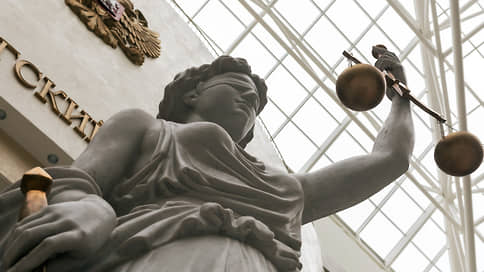Bankruptcy expenses have been waiting for three years – Newspaper Kommersant No. 47 (7492) dated 03/21/2023
[ad_1]

The Supreme Court of the Russian Federation (SC) will decide who should pay for the services of an arbitration manager (AC) if the bankruptcy case is terminated due to the debtor’s lack of funds for the procedure. By law, the costs are borne by the initiator of the proceedings. However, in this case, the tax inspectorate referred to the possibility of paying AC from the debtor’s receivables. The courts supported this position, refusing to recover money from the tax authorities themselves. Lawyers say the issue is relevant as lenders have increasingly shied away from bankruptcy financing lately.
The SC will consider who should pay for the terminated bankruptcy. In February 2017, AU Denis Tikhmyanov was appointed to monitor Ilios LLC. In July, the company was declared bankrupt and bankruptcy proceedings were opened, retaining the manager. But in September 2021, at the request of the tax authorities, the case was closed due to the debtor’s lack of funds and other property to cover expenses. After that, the AC applied to the court with a request to recover from the initiator of the bankruptcy – the tax inspectorate for Kaliningrad – its remuneration and expenses incurred.
In April 2022, the Arbitration Court of the Kaliningrad Region satisfied the AC’s claim, awarding a total of 561.9 thousand rubles over 3.5 years. The court noted that the debtor’s own funds were insufficient to reimburse the costs. But the appeal canceled this decision, explaining that the costs of the bankruptcy case are paid off by the applicant, provided that the debtor does not have funds and property for this. But the debtor, after the termination of bankruptcy, “did not lose legal capacity”, besides, he has accounts receivable for 1.52 billion rubles. AC did not prove that it applied to the debtor for expenses and that they cannot be recovered, the ruling says. Cassation agreed to this.
Mr. Tikhmyanov appealed these decisions to the Supreme Court. The complaint notes that when considering the issue of dismissing the case, the court already assessed the liquidity of the receivables, while it was the Federal Tax Service that pointed out the “futility of recovery”, while the debtor has no other property. The courts also did not take into account that Ilios was declared bankrupt “under the simplified absentee debtor procedure” and the tax authorities themselves found that the LLC was created “for the transit of funds in order to obtain unreasonable tax benefits.” The company “was never located at the address of registration, it had no employees and property, expenditure transactions that characterize the company as actually operating were not carried out.” The case was referred to the economic board, the hearing is scheduled for April 10.
Recently, applicants have increasingly evaded bankruptcy financing or asked to reduce the manager’s remuneration, with which the courts often agree, says Valeria Gerasimenko, general director of the Northern Capital SRO Union. Meanwhile, the bankruptcy law contains a direct provision that in case of insufficient funds of the debtor, the expenses are borne by the applicant. By initiating bankruptcy, the creditor “by the very fact of filing an application already essentially agrees that he can incur expenses,” emphasizes Ms. Gerasimenko.
To assess the prospects for bankruptcy, creditors conduct a preliminary analysis of debtors, adds Vladimir Efremov, partner in the dispute resolution and bankruptcy practice of BGP Litigation: “In 2022, the Federal Tax Service launched a comprehensive debt management system that allows you to assess the prospects for collection.”
RCT senior lawyer Diana Vardanyan is waiting for a clear position of the Supreme Court, noting that “practice is diverse” – the courts, for example, can satisfy the AC’s demand for a fixed remuneration, but refuse to collect interest. It is also interesting what assessment the Supreme Court will give to the “contradictory behavior” of the tax authorities, who themselves asked the court to dismiss the case due to the lack of funds from the debtor, Ms. Vardanyan notes: “If you support the Federal Tax Service, it turns out that from the point of view of continuing the procedure, the debtor has no property, but from the standpoint of repayment of already formed expenses, there is property.
At the same time, the executive director of the A1 Bar Association, Natalia Stotskaya, “is unclear why such a significant receivable turned out to be illiquid”, because among the debtors “there are operating commercial organizations”. If it turns out that the AC “improperly performed its duties,” the lawyer explains, his remuneration can be “substantially reduced.” “The court should have analyzed the liquidity of the accounts receivable to reimburse the expenses of the AC, and not limit itself to a formal indication of its presence,” says Victor Panchenko, executive director of YUR-PROEKT LLC. Moreover, Mr. Efremov clarifies, it was necessary to evaluate the accounts receivable even when the bankruptcy case was terminated.
[ad_2]
Source link





